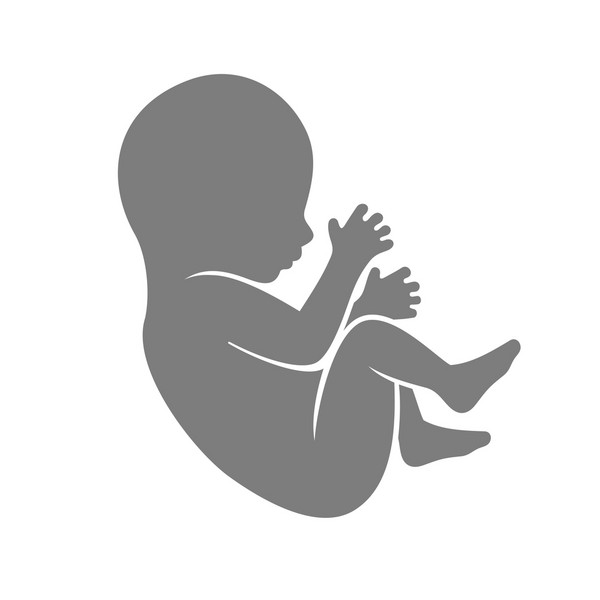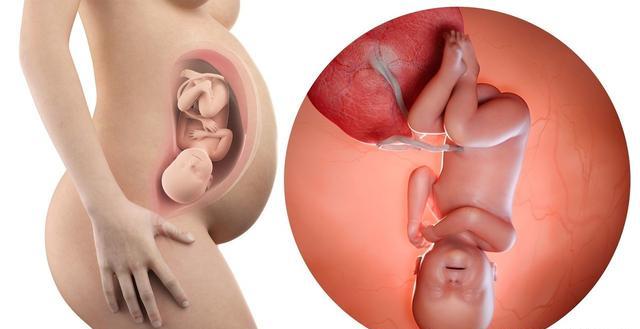
What Can Fetuses See Before Birth?
Advertisement
In most people’s minds, fetuses just grow quietly in the wombs without doing any other things. But the study finds that the vision of the late-term fetuses is much more developed than we think. They can even choose what they want to see.

The researchers from Lancaster University in the UK hoped to have a better understanding of fetal vision. The main researcher, Vincent Reid pointed out, ‘We’ve learned a lot about the other senses of the fetuses. We’ve also learned many things about neonatal vision, but we know little about the vision of fetuses before birth. Newborn babies are quite good at recognizing faces, and comparing to other shapes of things, they also prefer to observe faces. That’s why we can assume that they’ve already developed this preference before birth.’
There were 39 fetuses who were tested, aging from 231 to 252 days, and they were all single births.
Since these fetuses were still developing in the wombs, researchers needed to learn about their vision using non-invasive means. The scientists used lights to shine outside the mothers’ bodies. Reid said, ‘These lights contain three light dots, imitating two eyes and a mouth of a human face. Newborn babies like to look at human faces, although we cannot show the fetuses a face directly, we can use a face-like shape.’
Advertisement
The Researchers used 4D ultrasound to observe whether the fetuses would turn their heads to respond to the light dots. They also inverted the three light dots, but the fetuses turned out to be less interested in it.
The fetuses are very interested in the three light dots imitating a human face. Reid said, ‘It means that we’ve already developed this preference before birth, and it may be innate, or be related to the experiences in the wombs.’
Another achievement of this research is that it pushes the human visual timeline a long way forward. The researchers pointed out that, ‘Now we know, fetuses will watch things actively. We found in the observation that, when the light dots occurred, they would make head movements actively. In this way, we can further study the vision of the fetuses in the future.’
Having had this research as a basis, scientists can do more investigations. Babies who are a few weeks old have poor focus vision, and everything they see is blurry, so do the fetuses a few weeks before birth. Reid’s team will also study whether fetuses are able to identify numbers and observe movements, because newborn babies can do so, and this will refresh our understanding of the development of human vision.
Advertisement
- Previous article
- Can Blue Light Filter Improve Sleep Quality?
- Next article
- The 10% rule:Start from the very beginning and achieve financial freedom within 10 years
Advertisement
OTHER NEWS

Sleep well first: Sleep and weight loss
BY Helen

COVID-19 Worsens Children‘s Education Inequality
BY Wood

Discover Aesthetic Transparent Wood that is Better Than Glass
BY Julia

The Games Fund Launched a $50 Million Early Investment Fund to Invest in American and European Companies
BY Hunt

The support behind more advanced mobile phones
BY Evelyn

Antique Vampire-Slaying kit up for Auction
BY Walker
RECENT NEWS
-

PUBG Mobile Esports Generated 200 Million Hours of Viewing in 2020
-

Mario Kart Tour Races to $200M revenue and 200M Downloads
-

Game Acquisitions Expand Globally in Q1 2021 with 280 Deals Worth $39 Billion Surpassing That in 2020
-

Free Fire Shows Strong Momentum, with Its Revenue Overtaking PUBG Mobile in a Single Market for Q1 2021
-

The Games Fund Launched a $50 Million Early Investment Fund to Invest in American and European Companies
-

How to Download and Install Wyze App for Free?
 1
1 1
1